How to improve your memory: six easy techniques
Our experts offer six simple tips to help you improve your memory – because no matter your age, brain health is important


Whether you want to maintain your cognitive performance into old age or simply beat a relative at a card game at Christmas, searching ‘how to improve your memory?’ can come up with confusing results on how to boost your brain health.
Memory loss is a concern for many people but, luckily, there are things we can do to look after our memory: from eating right and making sure you’re getting the right vitamins, including the best B12 supplements, to exercising regularly and achieving quality sleep. In fact, if you nail the basics, then you stand a good chance of keeping your brain firing on all cylinders.
To help you understand the key components of a healthy brain and what you can do to improve your memory, we’ve enlisted experts to outline the simple ways you can keep your mind healthy, including prioritizing social interactions, spending time outdoors and eating a varied, healthy diet.
How are memories made?
“A functioning of memory is fundamental to human activity,” says Professor James Goodwin, the director of Science and Research Impact at the Brain Health Network and author of the book Supercharge Your Brain.
“Memory is the function of the mind whereby information is encoded, stored, and retrieved. Immediate, short-term or working memory allows recall for a short period of time (seconds to a few minutes) without rehearsal. Longer-term memory stores information over days, weeks, months, and years. It forms the basis of who we are and reflects the circumstances of our life,” he says.
That’s not to say that our brains are infallible, as Goodwin explains, part of our memory involves actively forgetting certain moments and situations.
“The majority of our daily experiences are simply forgotten,” says Goodwin. “That’s because memory is not a perfect machine – evolution never intended us to have a video-like memory that remembered everything. Memories are corrupted by our emotions, our personal bias, our personal health and brain disorders, and the chaos of the circumstances around us. Memory loss often occurs as we get older, with working memory affected more than consolidated memories. However, the rate at which it declines depends on the individual, but, regardless, everyone can help reduce their risk by paying attention to their lifestyle and environment.”
Get the Fit&Well Newsletter
Start your week with achievable workout ideas, health tips and wellbeing advice in your inbox.
How to improve your memory
It may be easy to assume that memory loss isn’t a factor until you reach your later years, but research shows that neurodegeneration can start as early as your 30s. This means regardless of your age, brain health should be on your radar.
“There is no silver bullet and no quick fix for looking after our memory, but there are factors that are especially important,” says Goodwin.
Browse our tips below for the techniques you can incorporate to improve your brain health and boost your memory.
1. Eat a varied diet
Nutrition is vital for the brain and the memory. There are five nutrients in particular that are commonly deficient in our western diet, and critical for brain function.
“Vitamin B12, vitamin D, omega 3 fatty acids, magnesium, and zinc are important for brain health and memory,” says Goodwin. “The problem is our woefully narrow diet – 75% of all food available in supermarkets comes from only five animals and 12 plant species. The answer to these dietary deficiencies is to eat as wide a diet as possible, reduce, but not eliminate, our consumption of meat; eat fish regularly; consume dairy products but not in excess (yogurt is exceptionally good for the brain), and avoid highly processed, low-fiber, convenience foods.”
When it comes to brain health, some diets are more beneficial than others. The Mediterranean diet, in particular, comes out on top.
A study from The New England Journal of Medicine showed that eating a Mediterranean diet with either olive oil or nuts may reduce the combined risk of stroke, heart attack, and death from heart disease.

2. Prioritize good sleep
Without adequate sleep, our memory can take a huge hit.
“During sleep, our natural brain drainage system removes toxins from the brain, unimportant synapses are filtered out and important new synapses are consolidated and sleep facilitates brain repair,” says Goodwin. “Good sleep is also ‘anti-inflammatory’ and ‘anti-oxidative’, both beneficial for good brain health.”
So what constitutes adequate sleep? The Global Council on Brain Health recommends seven to eight hours per every 24 hours as the optimum.
“Our sleep patterns change naturally with age, so our sleep doesn’t have to be seven to eight hours all in one go,” says Goodwin. “We can make it up by daytime napping, as long as it doesn’t exceed 40 minutes, as this can disrupt our overall sleep pattern.”
3. Exercise regularly
“For good brain health, we should engage in 150 minutes of purposeful, aerobic exercise per week and we should have an active lifestyle outside of that activity,” says Goodwin. “In the same way that exercise is not an antidote for smoking, it is not an antidote for a couch-potato existence. More than eight hours of sitting down per day can undermine the benefits of daily exercise. Empirical research has shown that regular moderate to intense physical exercise (for example, brisk walking, cycling, jogging, playing bowls, tennis, swimming) reverses the aging of the hippocampus, one of the brain’s most important centers of learning and memory.”
Why not try this lower body dumbbell workout or the best abs workout to work up a sweat?
4. Interact with people
Sustained social isolation and loneliness have a huge impact on brain function, especially memory.
“Loneliness is as bad for your general health as smoking 15 cigarettes a day,” says Goodwin. “Loneliness is exceptionally inflammatory and provokes the release of stress hormones, such as cortisol. People who are chronically lonely see a 20% faster decline in their cognition (thinking skills, eg working memory) than those who are not lonely.”
It’s important that you meet your social quota each day by interacting with neighbors, friends, and family.
“Science has shown that even casual contact and friendliness with passing strangers, such as shopping or going out to a coffee shop, yields benefits for wellbeing and cognition,” says Goodwin.

5. Make time for sex
“It may seem a little odd, but regular sexual activity in a steady relationship has been shown to improve memory, visual skills, verbal fluency, and even mathematical performance,” says Goodwin. “In fact, sexual activity is the most intimate of social interaction; it has exercise benefits and it is euphoric because of the release of specific hormones before, during, and after orgasm, such as dopamine, oxytocin, serotonin, and encephalins.”
6. Get your daily sunlight
Just as getting an adequate amount of sleep is important for brain health, ensuring that we have consistent wake and sleep times can help us regulate our eating patterns and improve the quality of our slumber, which is important for brain health.
“It is very important to synchronize our sleep cycle to day length, so getting natural daylight into our eyes in the morning is vital, as is keeping artificial (blue) light out of our eyes at night,” says Goodwin.
Stacey Carter is a Freelance Health Writer who has written print features and digital content for titles such as Woman & Home, Natural Health, Women’s Health, Get The Gloss, and Stylist. You'll find her covering a wide variety of health-based topics, talking to leading figures in the fitness industry, and investigating the latest trends in wellness. When she’s not at her laptop, weekend hikes, testing out new recipes in the kitchen and LISS-style workouts are her favourite ways to switch off.
-
 I thought sports weren't for me, until I realised they're a game-changer for ticking off cardio
I thought sports weren't for me, until I realised they're a game-changer for ticking off cardioI swapped HIIT and running for tennis—and I've never felt better
By Alice Porter Published
-
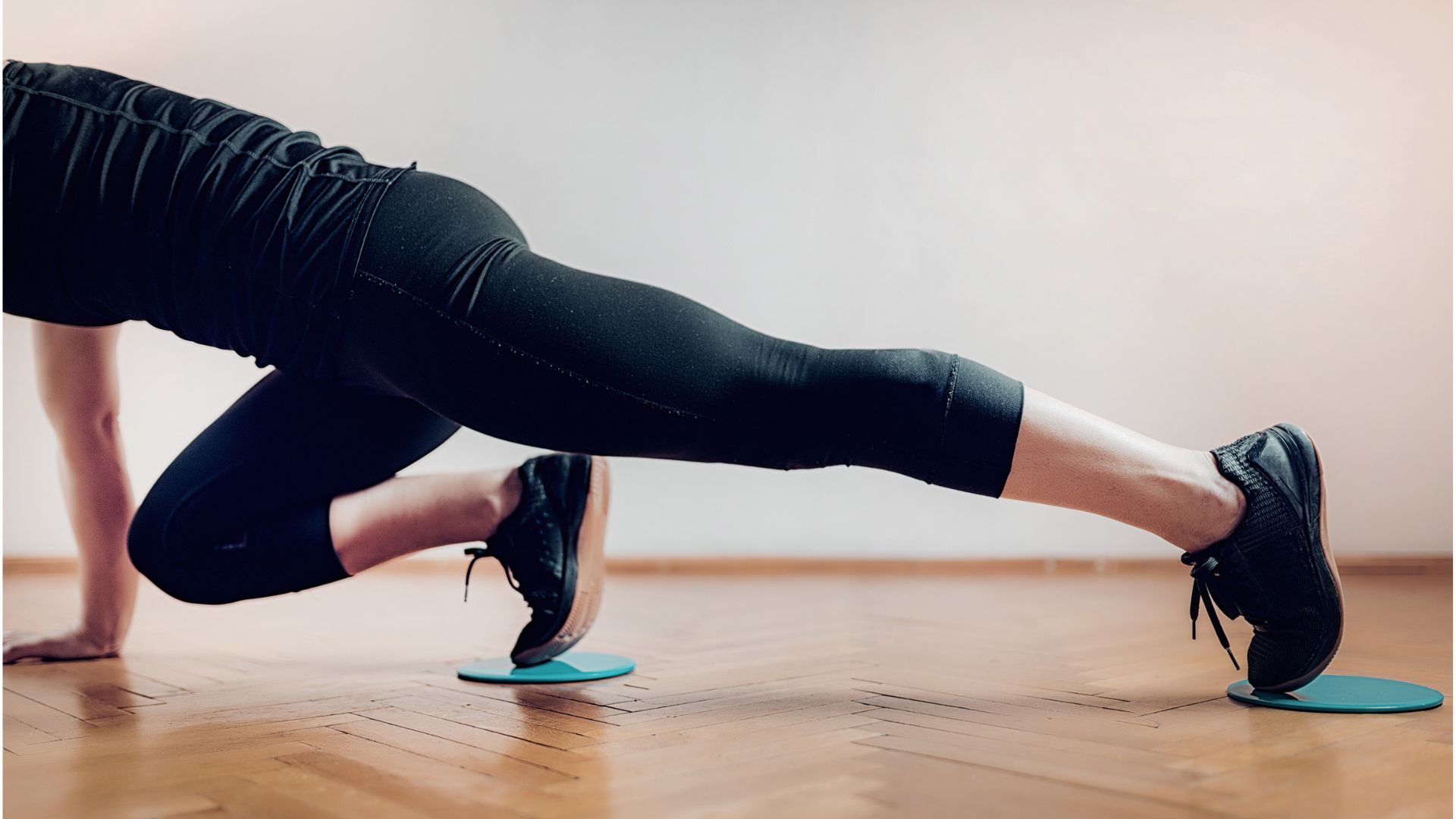 I'm a fitness writer who swears by Pilates and I think this piece of equipment is the best alternative to reformer classes—and it costs less than $10
I'm a fitness writer who swears by Pilates and I think this piece of equipment is the best alternative to reformer classes—and it costs less than $10This might just be the best alternative to a reformer machine
By Alice Porter Published
-
 Should you eat before bed?
Should you eat before bed?feature Late night cravings are often inevitable but should you eat before bed or will it affect your health?
By Alice Porter Published
-
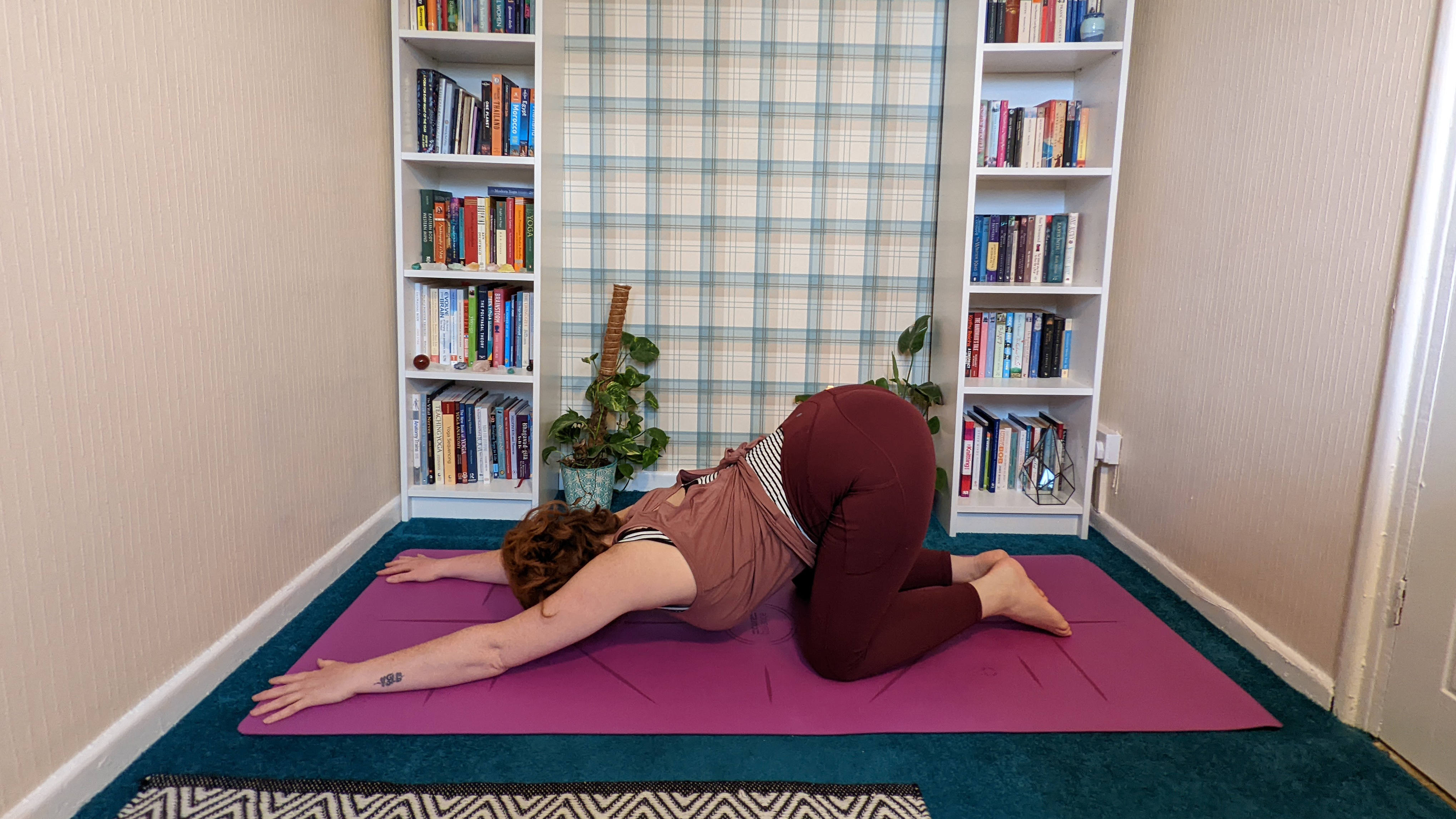 Yoga for shoulder mobility and strength
Yoga for shoulder mobility and strengthhow to Yoga for shoulder mobility: remove tension and aid movement with these yoga postures
By Kat Bayly Published
-
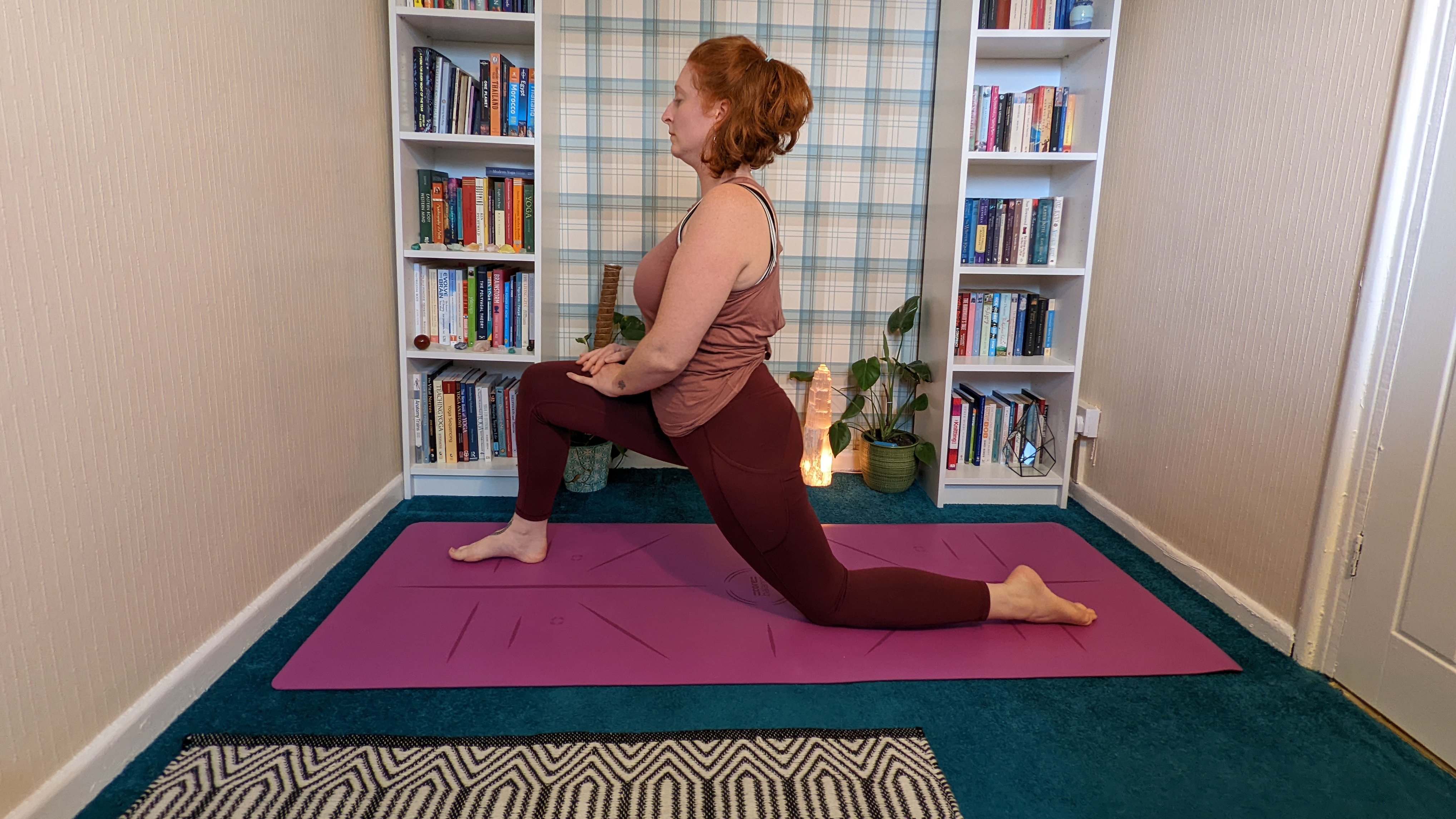 Hip mobility yoga flow: improve your flexibility with these moves
Hip mobility yoga flow: improve your flexibility with these moveshow to Hip mobility yoga: free up tight hips with these exercises
By Kat Bayly Published
-
 Six ways to get rid of period bloating
Six ways to get rid of period bloatingStruggling with period bloating? Try these tips and tricks to beat the bloat
By Maddy Biddulph Published
-
 How to do yoga with bad knees
How to do yoga with bad kneesEase joint pain by learning how to practise yoga with bad knees
By Sam Hopes Published
-
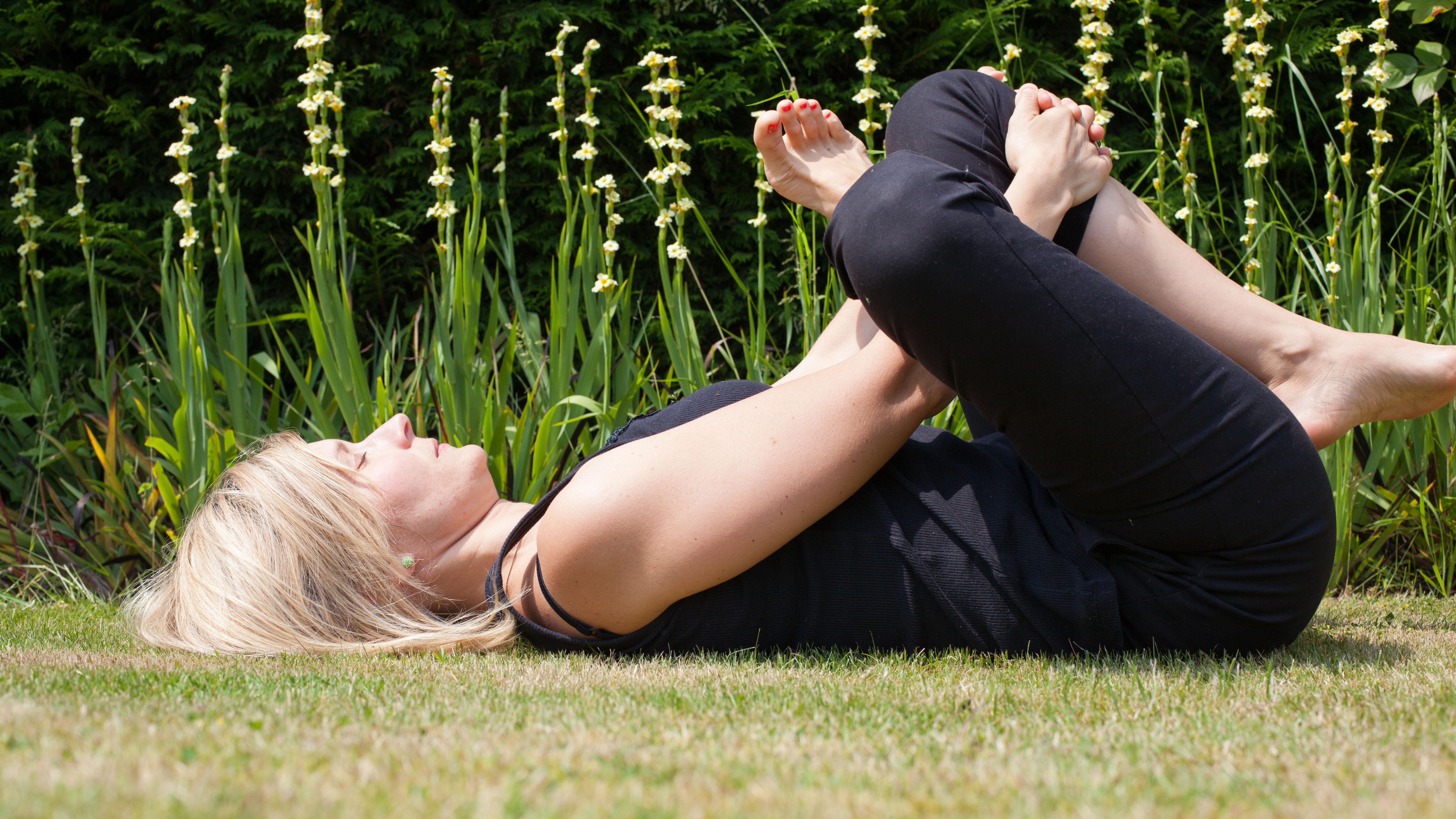 Yoga for knee strength: six moves to try
Yoga for knee strength: six moves to tryYoga for knee strength: what to try at home to improve joint mobility and stay supple.
By Maddy Biddulph Last updated
-
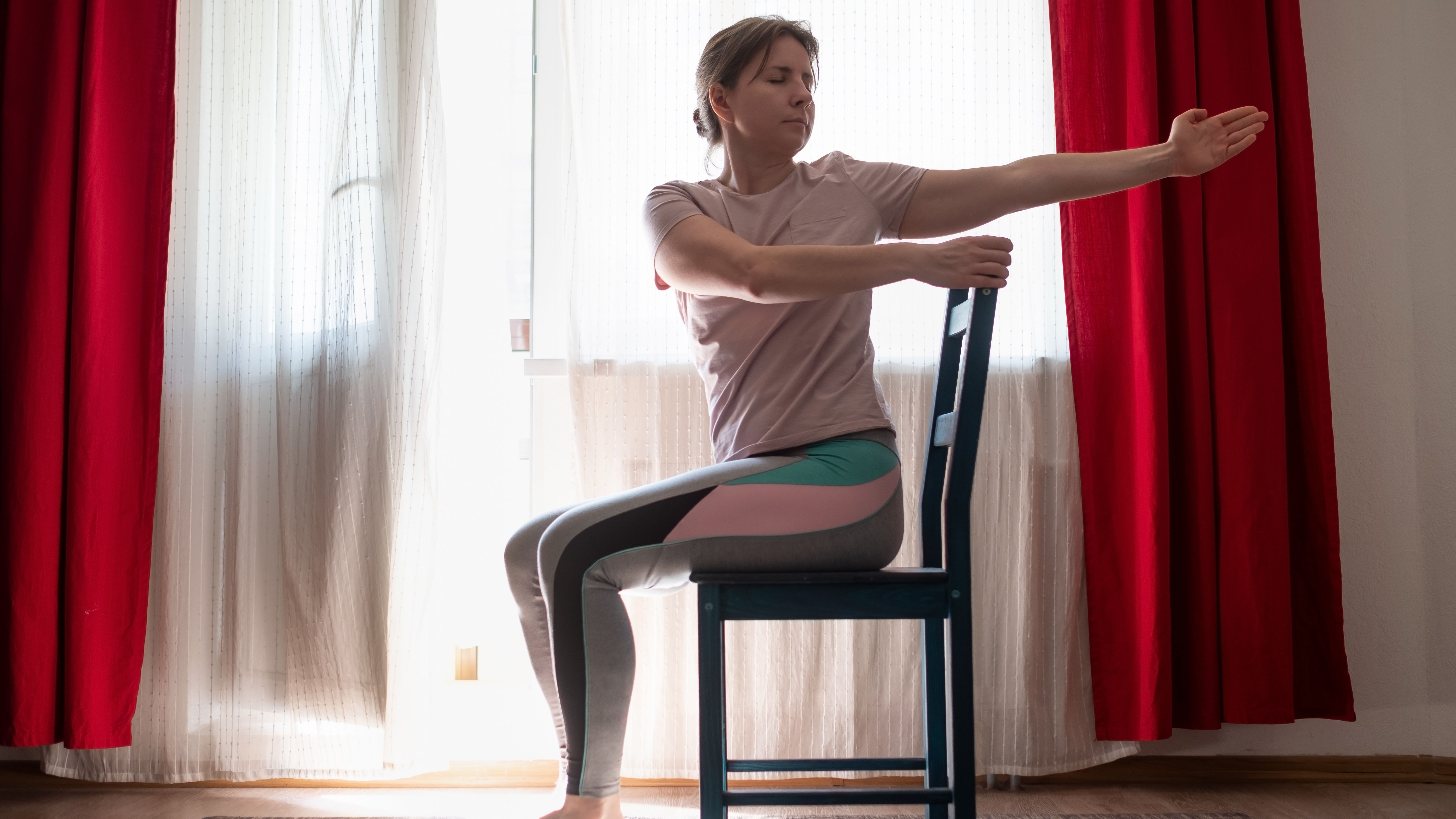 How to do a seated yoga flow
How to do a seated yoga flowGrab a chair and try this seated yoga flow, to improve your mobility and flexibility
By Maddy Biddulph Published
-
 Wrist-free yoga flow: a 15 minute flow without any downward dog
Wrist-free yoga flow: a 15 minute flow without any downward dogFitness Rest up your sore joints with this wrist-free yoga flow
By Sam Hopes Published